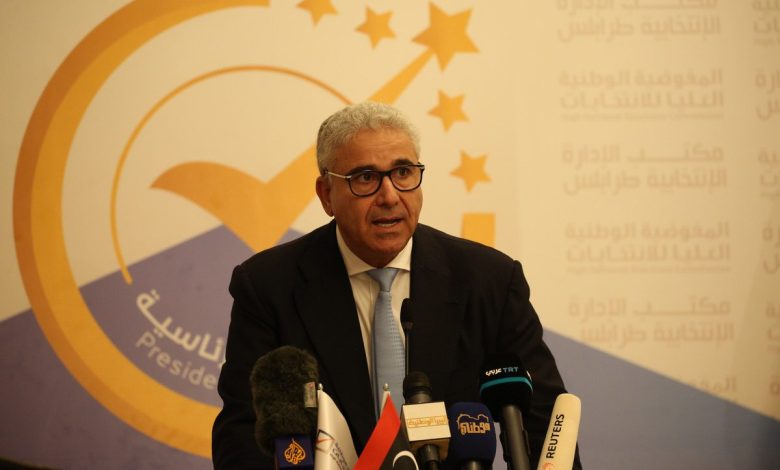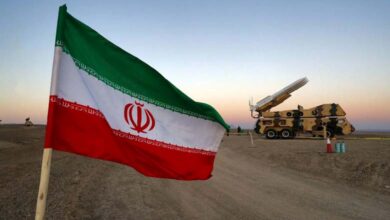Bashagha: “We continue to give a chance for peace so that we avoid war”

Nearly 70 days after the Libyan parliament gave a vote of confidence to Fathi Bashagha’s stabilization government, his predecessor remains stubborn in handing over power.
In the face of Abdul Hamid Dbeibeh’s intransigence in handing over power to his successor, Fathi Bashagha, Libya is facing some scenarios, some of which are catastrophic and threaten to return the African country to the conflict zone.
However, in a speech on Wednesday from the central Libyan city of Sirte, head of the stabilization government Bashagha said: “Despite his government’s ability to enter the capital Tripoli by force, his government tends to be peaceful”.
Force of law
Bashagha explained that the deposed Libyan government, which refused to hand over power, wanted to cause sedition in Libya, but that his government continues its dialog and will enter Tripoli by force of law.
He warned that his government would not stay away from the capital Tripoli for long but would not seek bloodshed, adding that his government would exercise its functions from Sirte.
Asked when the Libyan government would enter Tripoli, Bashagha said: “We are reaching out to all political forces in all cities of Libya, including Tripoli, and we have given and continue to give a chance for peace so that we avoid war”.
He pledged to open a new page for building Libya with all justice, sending a message to all Libyans: “We are one country and one body. We have a trust in our children to save Libya and get it out of the situation in which it now lies”.
Role of the international community
The Libyan Prime Minister explained that his country is part of the international community, noting that the international community will not help Libya, as long as we do not help ourselves.
He said there is no more than 20% disagreement among Libyans, but some regional and international countries want to settle their accounts in Libya and use them as a bargaining chip.
He pointed out that the deposed Libyan government tended to focus on how to continue in Libya for as long as possible, by changing the form of government, instead of carrying out reforms that the African country badly needs.
He continued: “We wanted Libya to have a presidential system, not a parliamentary one, but Libya has gone through its worst experience ever, and that is the experience of a family system, like some other countries”, he said, referring to Dbeibeh’s government, which refuses to hand over power.
Internal message
He also sent a message to those he said were afraid of his government: “We want all Libyans with us. The past has nothing to do with us and it is in the hands of legal and judicial authorities”.
He continued: “We want to repair the damaged social fabric, we want to alleviate the suffering of Libyans, determined to move forward with reparation”.
Mayor of Sirte Mukhtar al-Maadani said Abdul Hamid Dbeibeh, the dismissed prime minister, violated his pledge to take care of Sirte. He said the Bashagha government should be present in the city and all areas of the African country.
National reconciliation
In his speech, the mayor of Sirte said the city welcomes the government to work from Sirte, calling for the displaced and the displaced to return to their homes again.
Sirte Tribes Social Council Chairman Moftah Marzouk expressed his hopes that the Libyan government will be able to spread peace and prosperity among the people of the same nation and put away the evil of wars that disrupted the structure of Libya, caused the country to lose national unity and caused the social fabric to rupture.
The Chairman of the Sirte Tribal Council called for speedy reunification through genuine national reconciliation based on the restoration of rights, reparation and law enforcement for those who committed crimes against Libyans or contributed to the plundering of Libya’s resources.












